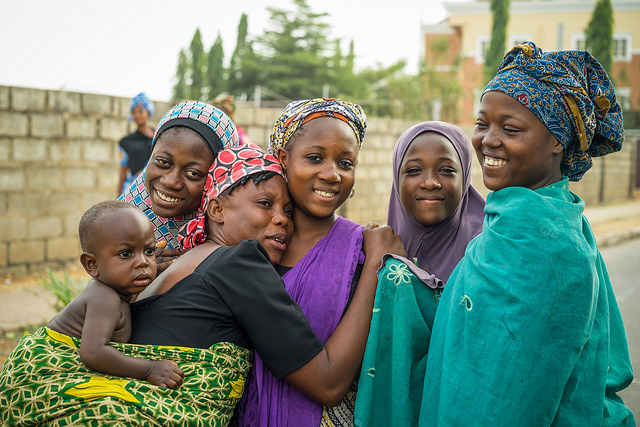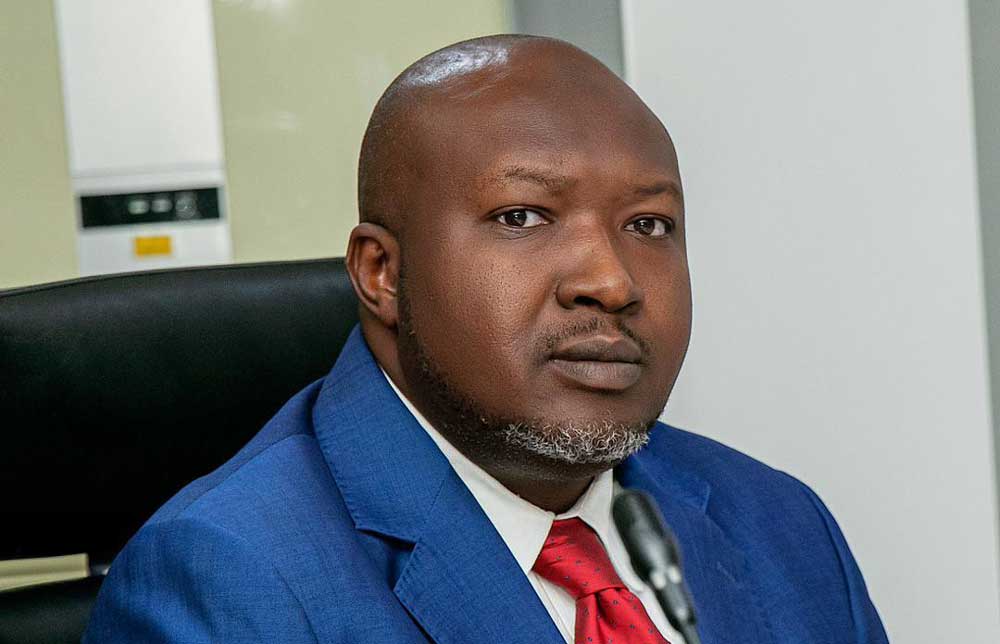Reproductive rights rest on the recognition of the basic right of all couples and individuals to decide freely and responsibly the number, spacing and timing of their children and to have the information and means to do so, and the right to attain the highest standard of sexual and reproductive health. They also include the right of all to make decisions concerning reproduction free of discrimination, coercion and violence.
– The World Health Organization, WHO.
Hauwa Isah* (name changed to protect identity) was 16 when she got married to a 25-year-old man her family chose for her. Living in a rural village Ibeto, Magama Local government area of Niger state doesn’t come with a lot of prospects for anyone, much more females, she said. “Here, as a woman you are expected to grow up, get married and have babies. Anything other than that is travesty,” she said in Hausa. At 15, she was “grown” enough to get married, but ran away from home because “I wanted to be more than a wife. I wanted to go to school and become somebody in life.” She returned home a few months later and married the man who later left her for another woman because of her inability to have a child as a result of complications from pregnancy. The saddest part she said, is not getting the chance to figure out what exactly she wanted out of life.
A few months after Isah ran away, her ailing mother took turn for worse, forcing her family to prevail on her to marry the man she wasn’t ready for. “I didn’t want to be wife at that age. I had friends from other parts of Nigeria who shared their dreams of becoming doctors, of going to the university and generally becoming what they wanted to be. I wanted that for myself too,” she explained.
“I got married before I was grown enough to know what I wanted out of life. And that cost me a lot. I got pregnant two months after my marriage and I almost died in the process. The baby had died inside of me for more than a month and I didn’t know. By the time we found out, I had gone into shock and my husband’s family thought I was going insane. It took a Yoruba woman, a midwife to save me. She insisted we went to the hospital where we found out that the baby had died in my womb and I could have died. I wasn’t even 17 yet and I could have died because I was born to have a baby, by our cultural standard.”
Now 35, Isah is no longer married to her husband, who took another wife months after her discharge from the hospital and upon hearing that his wife would have to wait for more than four years to attempt to have another baby “to allow her body grow properly.”
Barrier to reproductive rights
For millions of Nigerian girls, the choice to marry, give birth and even have sex is never theirs; as they are coerced into unwanted sex or marriage, putting them at risk of unwanted pregnancies, unsafe abortions, sexually transmitted infections (STIs) including HIV, and dangerous childbirth, data from the United Nations Population Fund (UNFPA) shows. Despite this, UNFPA says “too many young people face barriers to reproductive health information and care. Even those able to find accurate information about their health and rights may be unable to access the services needed to protect their health.”
These barriers are as cultural as they are political; even religious, said Fadekemi Agarau, co-founder of Education as a Vaccine (EVA), a non-profit organisation “committed to building innovative and sustainable mechanisms for improved quality of life for vulnerable children and young people. “Religion is the filter for seeing and analysing everything, including interaction with each other,” she said in an interview.
“Nigeria is oblivious to the issues of sexuality,” and that she said, affects women, especially young women’s reproductive rights. Reproductive rights, according to Nigerian Institute of Advanced Legal Studies, “are the rights of individuals to decide whether to reproduce and have reproductive health. This may include an individual’s right to plan a family, terminate a pregnancy, use contraceptives, learn about sex education in public schools and gain access to reproductive health services.”
According to the United Nations, of which Nigeria is a member, “all couples and individuals have the basic right to decide freely and responsibly the number and spacing of their children and to have the information, education and means to do so; the responsibility of couples and individuals in the exercise of this right takes into account the needs of their living and future children, and their responsibilities toward the community.”
“There is a lot of things happening [in the campaign for sexual and reproductive health rights of Nigerian] that people don’t accept,” Agarau said and that posses a lot of danger to millions of Nigerian women, who the culture and the law are adamantly unfavourable to.
In Nigeria, as with many restrictive countries, the husband can veto his wife’s use of family planning services, posing a threat to the lives of the wife or wives and the children. “The reality comes from the fact that most government hospitals require the approval of a husband before administering family planning treatments on a married woman. Such policy seems to derive its authenticity from the cultural and traditional belief that a man owns the right to his wife’s fertility,” Oluchi Azoro-Amadi, Assistant Research Fellow at Nigerian Institute of Advanced Legal Studies (NIALS) said in The Status of Women’s Reproductive Rights in Nigeria and the Discriminatory Effects of Spousal Veto over Family Planning.
While culture serves to restrict women’s access to sexual and reproductive health rights, the law goes a step further to alienate her of her rights, as found in the Nigerian constitution. For instance, the recurrent issue of sexual violence, specifically, rape. Although Section 357 of the Criminal Code Act states that: “Any person who has unlawful carnal knowledge of a woman or a girl, without her consent, or with her consent, if the consent is obtained by force or by means of threats or intimidation of any kind, … is guilty of an offence which is called rape”, Section 211 of the Evidence Act reads: “When a man is prosecuted for rape or for attempt to commit rape or for indecent assault, it may be shown that the woman against whom the offence is alleged to have been committed was of a generally immoral character, although she is not cross-examined on the subject; the woman may in such a case be asked whether she has a connection with other men, but her answer cannot be contradicted and she may also be asked whether she had connection on other occasions with the prisoner, and if she denies it may be contradicted.”
Nigerian laws accentuate “discrimination against women,” Eghosa Osa Ekhator, Lecturer, Law School, University of Chester wrote in his research paper, Women and the Law in Nigeria: A Reappraisal; published in the Journal of International Women’s Studies. “Some of these laws will include the Labour Act, the Police Act, customary practices and sexual violence laws amongst others,” he added.
As the Nigerian law, cultural and religious beliefs conspired to restrict women’s rights in a severely patriarchal Nigeria, what impact does this have on millions of girls and women as it relates to their reproductive and health rights?
Dr Abiola Akiyode-Afolabi, founder, Women Advocates Research and Documentation Centre and chairperson, Transition Monitoring Group has the answer: It hinders women’s advancement.
In 2013, the National Population Commission (NPC) warned that the number of teenage mothers in Nigeria may rise to 60 million by 2018, with data showing that complications during childbirth and pregnancy are the second causes of death of 15-19 years old girls worldwide, according to the World Health Organisation (WHO). “The most significant of the many grave consequences of the lack of adequate sexual health and rights in Nigeria is the denial of the sexual health and rights of women, sexual minorities and people with HIV,” said the World Health Organisation (WHO).
Available data indicates that nearly one-quarter (23%) of adolescent women age 15-19 are already mothers or pregnant with their first child, according to a 2013 Nigeria Demographic and Health Survey (NDHS), with young motherhood is highest in North West Zone (36%) and lowest in South East and South West Zones (8% each). This statistics is indicative of state of women’s access to not only education, but access to reproductive health rights, especially given that teenagers from the poorest households (43%) are more likely to have begun childbearing than those from the wealthiest households (5%).
Despite its restrictive stance on sexual and reproductive health rights, unsafe abortion remains rampart, according to Guttmacher Institute which added that although “abortion is legal only when performed to save a woman’s life; still, abortions are common, and most are unsafe because they are done clandestinely, by unskilled providers or both.”
The Institute further explained that: “In spite of Nigeria’s highly restrictive abortion law, an estimated 1.25 million induced abortions occurred in 2012. The number doubled from an estimated 610,000 in 1996 because of both population growth and an increase in the rate of abortion.”
Cost of lack of sexual reproductive health rights
Two hundred and twenty five (225) million “women worldwide want, but lack access to, contraception; more than 800 women die daily from preventable causes related to pregnancy and childbirth,” said Global Fund for Women. What this means, according to several Nigerian experts and international observers is that in a country such as Nigeria, maternal mortality rates will likely keep soaring and youth secondary school enrollment will likely keep dropping.
Young motherhood is highest in Northern Nigeria, where 73% of girls between ages 13 and 19 are married in the North-East states, according to the DHS. Thus, married adolescents in North West and North East Nigeria, many who should be in school, make up about 42% of the total number of Nigerian married adolescents aged 15-19, and they contribute an estimated 71% of the annual births by Nigerians in the 15-19 age group, according to a 2005 National HIV/AIDS & Reproductive Health Survey conducted by the Federal Ministry of Health.
“I really want to go to school,” 15-year-old Talata who hawks vegetables every morning in Abuja told this reporter. “But it doesn’t look like I will be going to school any time soon,” she added. This brief conversation emerged from an observation that Talata looks longingly at a primary school on her route, wishing she was one of those children in classrooms.
“We left Borno for Abuja after Boko Haram killed my father in our farm. Then I was in school but since we came to Abuja, it has been my mother taking care of us and all of us children have to help out in one way or another. She doesn’t have money to buy school supplies, even if school is free,” she said as he lifts a load of vegetables to her head in preparation for a 10 kilometers trip ahead of her.
Nearly eight million (about 60%) of 13.2 million out school children in Nigeria are girls, data from the United Nations show. When children, especially girls are denied rights to education, their earnings and standards of living are limited, the World Bank said. “On average, women with secondary school education earn almost twice as much as those with no education at all,” the global bank said.
“As you probably know, poverty is sexist in the sense that it affects more women than it does men. Girls who are denied rights to education grow up to be women with limited means of income and women exposed to several health challenges – maternal health issues, malnutrition, etc. The after effect of that we have seen over the years, is that children and the society at large becomes poorer when more than half of its population is relatively or absolutely poor,” Modupe Adebayo, a community health midwife in Ibadan said.
Abortion though illegal, remains rampart, costly to the government and deadly
“The responsibility not to get pregnant is placed on the girls, not men who are getting them pregnant,” Agarau said, signalling an important issue Nigeria would rather not want to acknowledge – abortion is widespread, even though illegal.
Abortion in Nigeria is governed by two laws The Penal Code in the northern Nigerian and The Criminal Code in the southern part of the country. The only exception to this law is when the life of the mother is determined to be in danger. And since abortion is illegal in Nigeria, many women resort to unsafe abortion methods, leading to abortion-related complications and increasing mortality and morbidity rates in the country, Agarau said.
“Desperation is a motivating factor against social shame and stigma,” Agaru said, explaining one of the leading causes of unsafe abortion in Nigeria. “When [sexual and reproductive health] services are not readily available, it gives space for quackery” she added, referring to the Guttmacher Institute estimation that 456,000 unsafe abortions are done in Nigeria every year. Nigeria’s Ministry of Health, in a joint report with the Society of Gynecologists and Obstetricians of Nigeria said 20,000 women access unsafe abortion each year.
Complications of unsafe abortion, Guttmacher Institute stated “range from pain and bleeding to more serious conditions, including sepsis (systemic infection), pelvic infections and injury from instruments—and even death.” According to the Institute, about 40 percent of women undergoing abortion experience complications serious enough to require medical treatment. In In 2012 alone, 212,000 women were said to have been treated in health facilities for complications of induced abortion. “In addition, an estimated 285,000 women had complications from unsafe abortion serious enough to require treatment in health facilities, but did not obtain the care they needed,” the Institute said.
“Unsafe abortion places a serious burden on the nation’s health system as well on the health and well-being of women and their families. The economic burden of unsafe abortion is substantial: A Guttmacher study found that in 2005, postabortion care in Nigerian hospitals cost $132 per patient, of which $95 was paid by families,” the Institute added.
How can Nigeria ensure that its women’s rights are human rights?
With more than half (56%) unintended pregnancies ending in an induced abortion; 32% ending in an unplanned birth and 12% in a miscarriage, what can be done to mitigate this? Buky Williams, Executive Director, EVA Nigeria finds solution in the Gender Equality Bill voted down by the Nigerian Senate due to “religious beliefs”.
“In Nigeria, girls and young women, just like their counterparts, around the world, face discrimination and barriers that limits their opportunities to develop to their full potential on the basis of their gender. The Nigerian society is patriarchal, both in the socio-economic and political settings. This is a result of rigid gender stereotypes reinforced by religious/traditional practices and societal structures,” Williams said last Thursday during a Women’s March for Gender Equality.
“No society can reach its full potential if half its population is systematically prevented from full participation. We demand immediate consideration for a strong GEO Bill that protects adolescent girls’ and young women’s rights as well as puts more women in power who can speak and stand up for girls and other women with confidence to end all forms of discrimination and gender-based violence.
“We need the GEO Bill that ensures that women’s right to having children is not used as a basis for discrimination in employment. Equality of opportunity and treatment between men and women is key! We must stop taking issues surrounding girls and women for granted and start setting it amongst the top priorities of government. The National Assembly should prioritise girls and women and Pass the GEO Bill into law,”
The bill, now renamed Gender and Equal Opportunities Bill and sponsored by Senator Abiodun Olujimi in its earlier draft, included key issues such as: reproductive rights, which makes Nigerian abortion laws to include cases of rape and incest, as well as guaranteeing access to contraceptives for family planning; affirmative action in education, workplace and political arena; challenging child, early and forced marriage, among others























Leave a comment